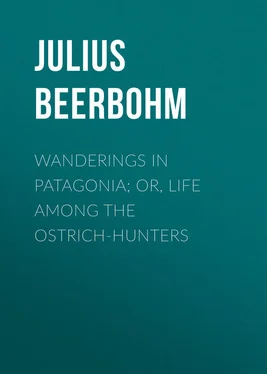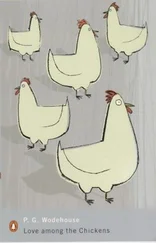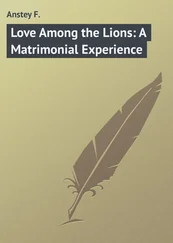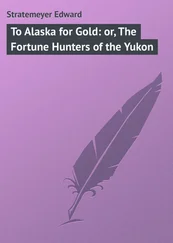Julius Beerbohm - Wanderings in Patagonia; Or, Life Among the Ostrich-Hunters
Здесь есть возможность читать онлайн «Julius Beerbohm - Wanderings in Patagonia; Or, Life Among the Ostrich-Hunters» — ознакомительный отрывок электронной книги совершенно бесплатно, а после прочтения отрывка купить полную версию. В некоторых случаях можно слушать аудио, скачать через торрент в формате fb2 и присутствует краткое содержание. Жанр: foreign_antique, foreign_prose, Путешествия и география, на английском языке. Описание произведения, (предисловие) а так же отзывы посетителей доступны на портале библиотеки ЛибКат.
- Название:Wanderings in Patagonia; Or, Life Among the Ostrich-Hunters
- Автор:
- Жанр:
- Год:неизвестен
- ISBN:нет данных
- Рейтинг книги:4 / 5. Голосов: 1
-
Избранное:Добавить в избранное
- Отзывы:
-
Ваша оценка:
- 80
- 1
- 2
- 3
- 4
- 5
Wanderings in Patagonia; Or, Life Among the Ostrich-Hunters: краткое содержание, описание и аннотация
Предлагаем к чтению аннотацию, описание, краткое содержание или предисловие (зависит от того, что написал сам автор книги «Wanderings in Patagonia; Or, Life Among the Ostrich-Hunters»). Если вы не нашли необходимую информацию о книге — напишите в комментариях, мы постараемся отыскать её.
Wanderings in Patagonia; Or, Life Among the Ostrich-Hunters — читать онлайн ознакомительный отрывок
Ниже представлен текст книги, разбитый по страницам. Система сохранения места последней прочитанной страницы, позволяет с удобством читать онлайн бесплатно книгу «Wanderings in Patagonia; Or, Life Among the Ostrich-Hunters», без необходимости каждый раз заново искать на чём Вы остановились. Поставьте закладку, и сможете в любой момент перейти на страницу, на которой закончили чтение.
Интервал:
Закладка:
The coast is extremely rich in fish, however, and a dried-fish trade might, perhaps, be successfully carried on with the Brazils, where a good market exists for this article, which forms the staple diet of the poorer classes in that country. An attempt to start an industry of this kind was made by a Frenchman, M. E. Rouquand, who established himself, in 1872, at Santa Cruz, with all the machinery, boats, etc., necessary for such an undertaking, under a concession granted to him by the Argentine Government. He built several houses and sheds there, the materials for which were conveyed at great expense from Buenos Ayres; and when everything was ready, and he was about to go practically to work, a Chilian man-of-war steamed into Santa Cruz one day and signified to him that he was trespassing on Chilian territory, and would be required to leave immediately. Chili, it appears, claims jurisdiction over Patagonia as far as Santa Cruz River, and could therefore not permit anyone to attempt to benefit that country whose authorisation to do so came from the Argentine Government. The latter country does not admit Chili's claims to possession over the territory in question, but contented itself in this case with a diplomatic protest against the act of violence committed in defiance of the Argentine flag, under whose protection M. Rouquand had laid out his capital and his energies. In the meantime, M. Rouquand is of course ruined, as neither Government has granted him any compensation for the losses he has sustained by his arbitrary ejection. After such an example, and as the settlement of the territory dispute seems to have been indefinitely shelved by the easy-going countries concerned, it is easy to understand why no one has hitherto been found disposed to risk his time and capital in an endeavour to establish any industry on the Patagonian coast.
Turning our backs on the 'Glen of the Spaniards,' as it is still called in Indian traditional nomenclature, we again continued our journey towards the hills, which were in reality much further than they had appeared at first sight, being, by the rather roundabout road by which we had come, about fifteen miles from the port. Another hour's ride brought us to their base, and as the keen morning air had made us all rather hungry, before going any further we dismounted, and having made a good fire with the branches of some of the thorny bushes which abounded everywhere, and which proved an excellent combustible, we discussed a hearty breakfast of cold meat and biscuit.
After a short rest we remounted and rode slowly up a glen which led between the hills, craning our necks expectantly as we climbed the escarpment which bounded its further end, from the top of which we should have a good view of the surrounding country. We emerged on the summit, and behold, there was nothing but an immense plain, stretching away in dreary uniformity to the far horizon. The scene was not a cheerful one. Down in the cañons the grass is long and green, and clumps of underwood, growing at intervals, lend a pleasant variety to the landscape. But on the plains, which often extend uninterruptedly for thirty or forty miles, all is different, and nothing more dull and dreary can be imagined than the view presented by these immense tracts of land, where, by reason of the sterility of the soil and the fierce winds which sweep continuously over them, no vegetation can possibly flourish. The soil is sandy and covered with stones, with here and there an isolated tuft of grass, withered and grey, whilst a peculiar gloom is further added to the melancholy of the scene by the sombre, melancholy hue of a straggling, stunted bush, the jume, which grows there in considerable quantities – in its blackness and ugliness, the fit offspring of such an uncongenial soil.
The plain we were now standing on was no exception to the general rule, and we found but little inducement to remain immersed in a long contemplation of its charms; so, turning our horses' heads, we followed the course of the hill range, which trended in a semicircle towards the port. After having ridden for some distance, the plain terminated, and we descended into a broken country again, marked with the usual peculiarities of glen and plateau. We presently came in sight of a large lake, which we thought might contain fresh water, but on coming closer we found that the shores were covered with salt crystals, and that the soil in the vicinity was impregnated with salt too. The lake measured about two leagues long, by a league and a half broad at the widest part, but the water was very shallow everywhere. We could see a herd of guanacos standing in the centre, and the water did not reach to above their knees. I have frequently observed these animals standing in the salt lakes which abound everywhere in Patagonia, but whether they actually go to drink I am not prepared to say, though it is hard to account in any other way for their presence there. We looked with some curiosity at these guanacos, as they were the first animals we had met with as yet on the mainland, but they were too far off for us to be able to observe them with accuracy. I shall describe the species at another opportunity.
In the meantime it was getting late, and our horses, which had been severely tried by the nature of the ground we had gone over that day, were beginning to show signs of fatigue. My horse, in particular, was completely done up, and it was with great difficulty that I managed to keep up with my companions.
At sunset we were still a long way from the ship. Dusk came on apace; the hills around us first grew indistinct and hazy, and then gradually settled down into a dark, solid mass, blackly defined upon the lighter background of the sky, over which the stars were now glittering in the frosty air. It was getting cold, too, and I began heartily to wish myself on board, especially as every moment it became more apparent that my horse was in imminent peril of collapsing altogether.
Still he stumbled on, occasionally shying wildly at the glimmering whiteness of some heap of bleached guanaco bones, or startled at the fanciful shapes assumed by the bushes in the deepening shadows of night.
Presently, as I was riding up a rather steep escarpment, my horse's saddle-girths slipped back, the saddle rolled over, and I fell with a heavy thud to the ground. The moment he felt relieved of my weight, and before I could jump up and seize the reins, the horse turned round and leisurely trotted back to a glen we had just left, where there was some fine grass, which had evidently taken his fancy in passing. I ran after him as fast as I could, but he gently, though firmly, refused to be caught, pausing now and then, whenever he had distanced me, to snatch a few mouthfuls of grass, and then starting off again as soon as I came near to him. This kind of thing went on for a long time, and when I had at last caught him, and had picked up the various saddle-belongings, I was completely done up. Not more so, however, than the horse, for when I remounted him he refused to budge an inch, and at the first touch of the whip, quietly lay down. I was now in a pleasant plight. I shouted, in the hope that my companions would hear me, but no answer came. They had evidently not noticed my mishap, and had continued their route, thinking I was coming up behind.
Reluctantly I had to make up my mind to stop where I was till the morning, though the prospect was anything but cheerful. I was too tired to go on on foot, and no persuasion would induce my horse to stir. I was very hungry, and, unfortunately, one of my companions carried what remained of the meat and biscuit; and though it was extremely cold, I had no other coverings for the night but my saddle-cloths, having neglected to bring my fur robes with me. Luckily, I had a box of matches; and having broken off a sufficient quantity of dry branches from the bushes, I soon managed to have a good fire burning, whose warm glow afforded me no little comfort. As a substitute for supper, though it was not a satisfactory equivalent, I smoked a pipe, and then, wrapping myself up as well as I could in the saddle-cloths, I lay down by the fire and tried to go to sleep. This I could not accomplish; for although I fell into a half-doze at first, as soon as the fire got low, the cold thoroughly woke me again, and I had to set off and look for a fresh supply of firewood – by no means a plentiful article. I soon made the fire burn up again; but, do what I would, I could not get to sleep, and finally had to abandon the attempt as hopeless.
Читать дальшеИнтервал:
Закладка:
Похожие книги на «Wanderings in Patagonia; Or, Life Among the Ostrich-Hunters»
Представляем Вашему вниманию похожие книги на «Wanderings in Patagonia; Or, Life Among the Ostrich-Hunters» списком для выбора. Мы отобрали схожую по названию и смыслу литературу в надежде предоставить читателям больше вариантов отыскать новые, интересные, ещё непрочитанные произведения.
Обсуждение, отзывы о книге «Wanderings in Patagonia; Or, Life Among the Ostrich-Hunters» и просто собственные мнения читателей. Оставьте ваши комментарии, напишите, что Вы думаете о произведении, его смысле или главных героях. Укажите что конкретно понравилось, а что нет, и почему Вы так считаете.












